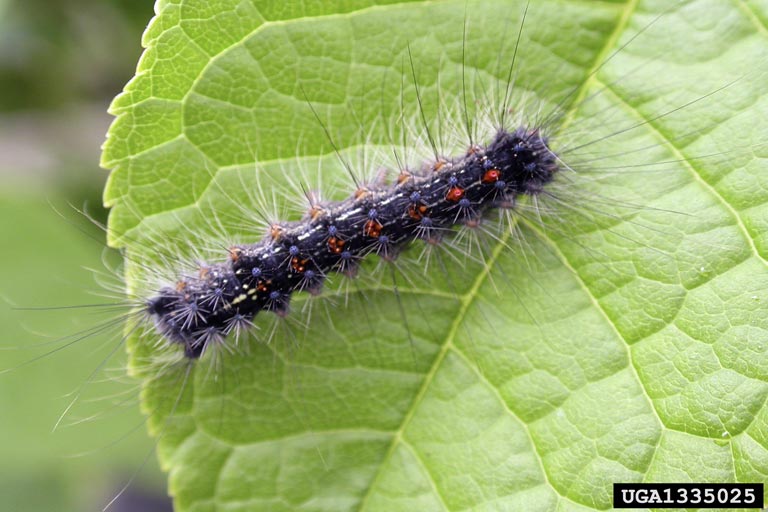
Be on the lookout for spongy moth
26 Apr 2022

The NSW community has been asked to look out for signs of spongy moth following recent heavy rainfall, providing an ideal environment for the exotic plant pest to thrive if it were to arrive here.
NSW Department of Primary Industries (DPI) Chief Plant Protection Officer, Satendra Kumar, said spongy moth, Lymantria dispar, poses a serious biosecurity risk to Australia.
“Spongy moth caterpillars feed on the leaves of more than 600 species of trees, including eucalyptus, fruit and ornamental plants,” Dr Kumar said.
“This pest has not been found, and is not wanted, in NSW. With the potential to damage and completely defoliate trees, it could devastate our environment, agribusinesses and horticultural industries.”
Spongy moth eradication programs in North America and New Zealand have cost $20 million and more.
Moth egg masses, about 40 by 20 mm in size, are covered in yellowish scales, can contain more than 1000 eggs and tolerate extreme temperatures and moisture.
If weather conditions are right, freshly hatched larvae can spin silk threads and drift on air currents for up to eight kilometres.
Feeding damage from larvae appears as holes in the leaves or irregular leaf margins. As larvae grow, whole leaves may be consumed. Each larva consumes about one square metre of leaves in its lifetime.
The distinctive hairy caterpillar has five pairs of blue and six pairs of red spots on its back.
Grey-brown adult males have a wingspan of 30 to 40 mm. Female moths are pale yellow with dark brown markings with a 40 to 70 mm wingspan and can fly distances of up to 40 km.
Spongy moth, formerly known as gypsy moth, is a notifiable plant pest in NSW – if you think you have found one, call the Exotic Plant Pest Hotline on 1800 084 881 or send a clear photograph via an online form or to biosecurity@dpi.nsw.gov.au with your contact details.
More information is available from NSW DPI
Media contact: 02 6391 3686

